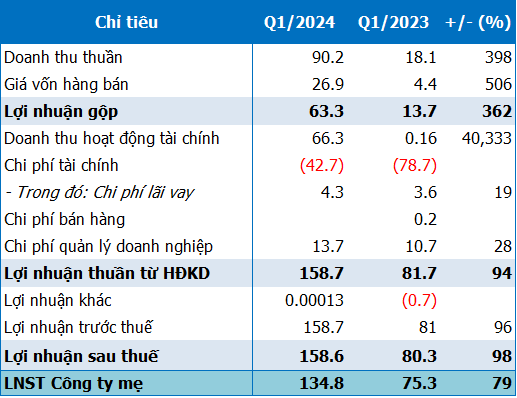Real Estate Investment Opportunities with the Revised Land Law
According to Dr. Le Xuan Nghia, a member of the National Monetary and Financial Policy Advisory Council, during a seminar on “Real Estate Investment Opportunities with the Revised Land Law” held on April 12, real estate prices in Hanoi have seen a significant increase, with the lowest increase being 15% and some projects increasing by over 30%. For example, apartments in Ciputra Urban Area (Hotay District) are currently priced at over 100 million VND/m2. Some new buildings in Smart City Urban Area (Nam Tu Liem District) are also priced at over 60 million VND/m2, and even over 80 million VND/m2.
Dr. Nghia questioned who is buying properties at such high prices and asserted that the recent increase in apartment prices is a “lone wolf” phenomenon in the market.

Overview of the seminar on “Real Estate Investment Opportunities with the Revised Land Law” on April 12. (Photo: H.H) |
“In a government meeting six months ago, the Prime Minister pointed out the crisis of segmentation in the real estate market and requested that we focus on promoting social housing and affordable housing,” Dr. Nghia said.
“The social housing and affordable housing segments have almost failed at this point. Meanwhile, the commercial apartment segment has continued on its own path with a frightening rate of price increases. I believe this is a strategic setback for housing and real estate market management.”
Analyzing the reasons for the recent surge in apartment prices, Dr. Nghia attributed it to an imbalance between supply and demand, with supply continuously decreasing.
The shortage of new supply has led to pent-up demand, resulting in continuous increases in housing prices.
Additionally, the limited supply of new properties has also reduced the supply in the secondary market, as those who own homes are reluctant to sell.
“An apartment that cost 3.6 billion VND two years ago is now valued at 7 billion VND, and everyone thinks it will continue to increase in value, so they are not selling. The shortage of supply and the continued increase in demand have resulted in supply and demand not meeting, and instead, they are operating in parallel. When supply stops and demand continues, it creates a bubble,” said Dr. Nghia.
 Dr. Le Xuan Nghia. (Photo: H.H) |
Associate Professor Dr. Dinh Trong Thinh agreed, stating that apartment prices have increased by 30-40% recently. Many investors preparing to sell their properties have also raised their asking prices. He warned that this would lead to a “bubble” in apartment prices, exacerbating the ongoing segmentation crisis.
Avoiding the “Bubble” Burst in the Apartment Market
Based on the current situation, Dr. Le Xuan Nghia cautioned that if the market is not warned now and the Land Law is not implemented soon, removing obstacles, accelerating legal procedures, increasing the supply of new properties, and enhancing competition in the market, especially in the social housing and affordable housing segments, the apartment market could collapse and the “bubble” could burst.
According to Associate Professor Dr. Dinh Trong Thinh, social housing and affordable housing are essential solutions to addressing the current segmentation crisis.
Mr. Thinh recommended that regulatory bodies thoroughly resolve legal bottlenecks, promote the release of products into the market, and increase competition.
Regarding the measures implemented in recent months, including the slow disbursement of the 120,000 billion VND credit package, which has not yet reached 1%, Dr. Nghia stated that “we cannot rely solely on banks to promote social housing,” as banks are also profit-oriented organizations.
Dr. Le Xuan Nghia expressed his belief that the new Land Law provides an opportunity to address the problems that have persisted in the real estate market for many years.
He recommended expediting legal procedures, developing a new credit incentive program for social housing and affordable housing, to balance the market and contribute to reducing apartment prices.
By Hong Khanh












































